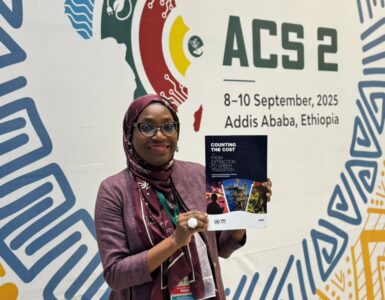Takoradi – Hen Mpoano, a Ghanaian Non-Governmental Organization (NGO), is to plant 200,000 mangrove seedlings to cover 50 hectares of degraded mangrove forests within the Greater Amanzule Wetlands (GAW) in the Western Region.
The GAW complex falls within the wet-evergreen high forest zone of Ghana and is a biologically diverse system comprising tropical/terrestrial forests, swamp forests, mangrove forests and the Ankobra and Tano river basins.
The AFRI100 project with funding from One Tree Planted, TerraMatch and World Resources Institute, would work with community volunteers, officers from the District Assemblies, Wildlife Division of the Forestry Commission and Fisheries Commission of Ghana to restore degraded mangrove ecosystems which serve as habitat and feeding ground for IUCN listed endangered species.
This is a scale-up of the ongoing activities to conserve the GAW with funding support from the US Forest Service and IUCN PPI who are building local structures for conservation and livelihood enhancement in communities in and around the GAW.
It is expected to support the livelihoods of more than 12,000 coastal residents of GAW by improving the abundance and diversity of finfish and shellfish in mangrove ecosystems and enhancing coastal protection and climate change resilience.
The project aligns with the commitment by Ghana to restore 1.7 million hectares through tree planting by 2030 and falls in line with the Fisheries Commission’s agenda to rebuild the declining fish stock of Ghana’s artisanal fisheries sector.
Restoring the degraded mangrove forest would provide a haven for a myriad of economically important fish species to spawn and feed.
Hen Mpoano would leverage the long-term partnership with the Wildlife Division of the Forestry Commission of Ghana in charge of wetlands, District Assemblies, Fisheries Commission, Sister NGOs, community leaders and volunteers in all phases of project implementation to ensure success.
The project would use nature-based solutions in reducing the impact of climate change and increase community resilience and mitigation to climate change.
The Project Manager, Mr Daniel Doku Nii Nortey, said the restored mangrove ecosystem would provide conditions for wildlife habitation and enhance the tourism potential of the GAW which is already being explored by local communities.
Also, he said, it would strengthen climate resilience and mitigation, improve water quality and ultimately lead to improving livelihoods and income and food security in coastal communities.
As part of the implementation of the project, relevant stakeholders (District assemblies, Traditional authorities, Wildlife Division of the Forestry Commission of Ghana, Fisheries Commission and Fringe communities) would be engaged through sensitization meetings to gain their buy-in and their ownership of the project.
Mr. Nortey said the GAW would further be enhanced to sequester additional 1,804,24.27 megagram carbon in the long term. He explained that reforestation had become necessary because riparian communities of the GAW had depended heavily on the natural resources associated with the wetland and exploited them for their food and livelihood security resulting in the degradation of these resources.
He said resource users would be sensitized to the sustainable use of the wetland resources.
Author: Abdullah Afedzi






